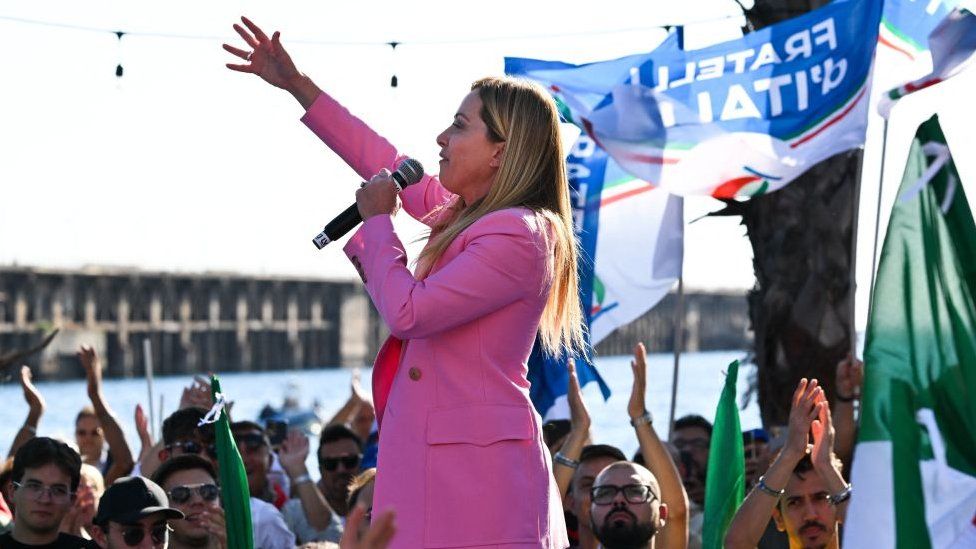Italy’s political leaders have brought their campaigns to a close ahead of pivotal elections on Sunday that could deliver the most right-wing government since the war.
Giorgia Meloni’s far-right Brothers of Italy are expected to win the race, and rival Giuseppe Conte told supporters the vote was of historic significance.
The end of the campaign was dominated by rows over Europe and Russia’s war.
But voters are most concerned about spiralling energy costs.
Bills are surging for homeowners and businesses alike. Selling ice cream from her small gelateria in the beach town of Ostia, Audrey said her energy bills had more than trebled to €6,000 (£5,350) a month.
The outgoing national unity government under Mario Draghi has already pledged €66bn (£59bn) to help Italians.
But, on the seafront in Ostia, Erica complained her shopping bills were going through the roo![]()
The answer being offered by Giorgia Meloni is billions of euros of tax cuts and a flat tax for anyone earning less than €100,000.
At the last election, she attracted a mere 4% of the vote but the last opinion polls produced more than two weeks ago gave her around 25%. She has benefited from being one of the few party leaders in the opposition, while the others were taking part in the government.
Her party resents being linked to Italy’s wartime fascist past, but its roots lie in a movement that was born out of it. This week a Brothers of Italy (FdI) candidate was suspended for praising Hitler and Vladimir Putin.

But the main challenge to FdI’s right-wing alliance from the left has struggled to get off the ground because of infighting with possible allies.
Centre-left leader Enrico Letta took to the stage in Rome on Friday evening to the sound of an old wartime anti-Nazi Resistance anthem Bella Ciao.
Fellow left-wing figure Elly Schlein used the rally to challenge Giorgia Meloni’s hostility to what she terms the “LGBT lobby”. “I am a woman, I love another woman, but I am no less a woman for this,” said Ms Schlein.
The FdI leader has also attacked “gender ideology” and called for a naval blockade to stop migrants from leaving Libya for Italy.
A native of Rome, unlike other leaders she chose to end her campaign away from the capital in the southern city of Naples. Southern Italy is distinctly poorer than the north, and she is facing stiff competition in the south from the Five Star Movement, which won the last election but has since lost ground.




